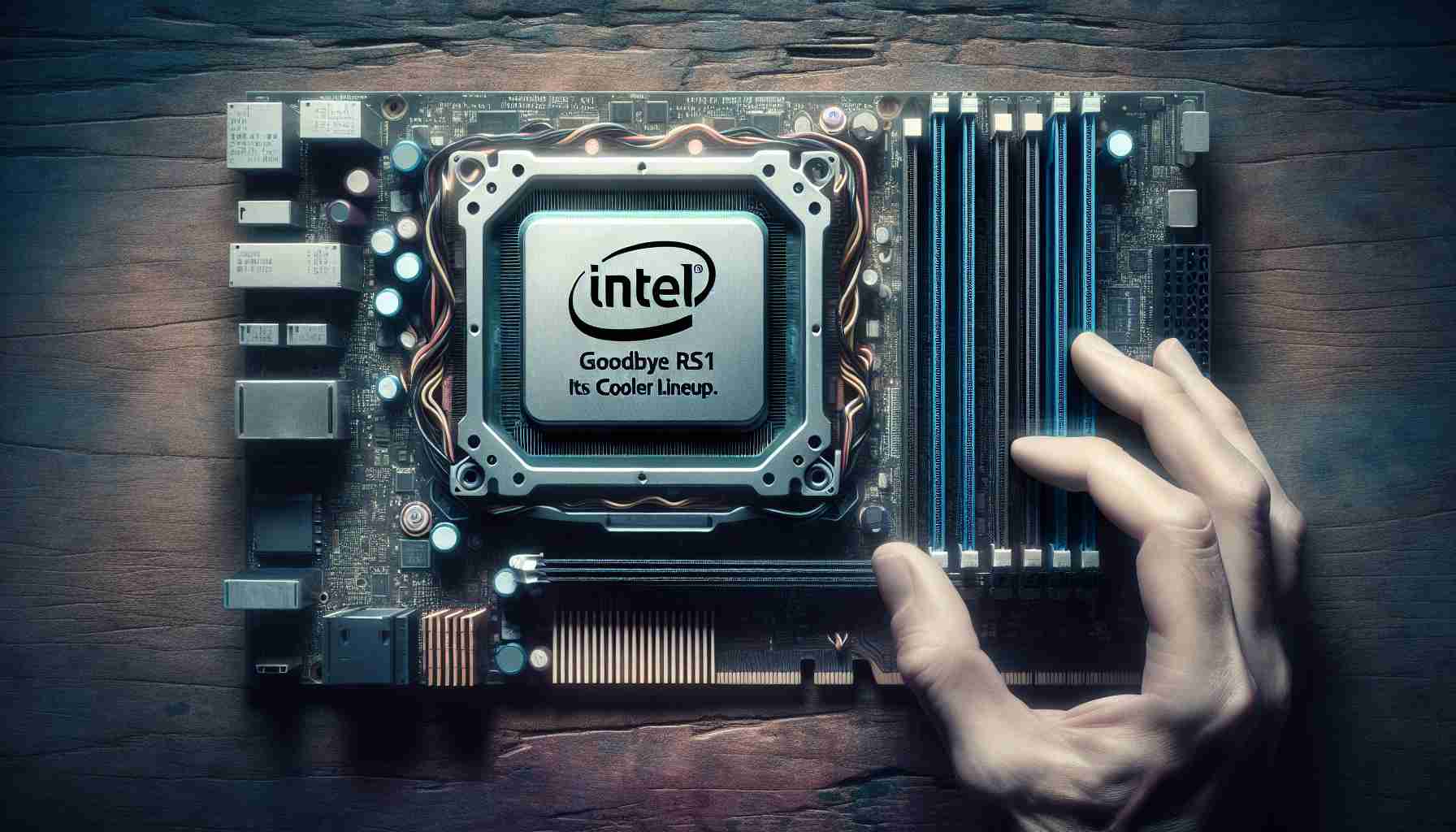Intel has officially discontinued its RS1 Laminar stock cooler, signaling a shift in the company’s approach to cooling solutions. Launched in 2021 to complement its 12th Gen Alder Lake CPUs, the RS1 featured an all-aluminum design and a modest size at 47 mm tall, weighing approximately 260 grams. Despite an improved heatsink and a larger, five-blade fan, this cooler was primarily meant for 65-watt chips.
Only two dual-core processors ever shipped with the RS1: the Pentium Gold G7400 and the Celeron G6900. Both processors have a thermal design power of just 46 watts, making the cooler adequate for them. Yet, given the RS1’s limited application and dual-core processors’ declining popularity, Intel’s decision to axe it makes sense.
Intel’s remaining stock coolers, the RM1 and RH1, continue to serve diverse market needs. The RM1 shares similarities with the RS1 but boasts a copper slug for enhanced heat transfer and an LED light strip. It supports a wide range of locked Intel CPUs across different generations, from Core i3 to Core i7, ensuring compatibility with newer models like the Intel Processor 300, a rebranded version of the Pentium G7400.
By phasing out the RS1 and relying on the RM1, Intel hopes to simplify its stock cooler lineup. This strategic move underscores the brand’s focus on efficiency and adapting to current CPU demands, a change likely welcomed by users seeking reliable cooling solutions.
Why Intel’s Move to Discontinue the RS1 Stock Cooler Is a Game-Changer
Intel’s decision to discontinue its RS1 Laminar stock cooler marks a significant evolution in their approach to processor cooling solutions. Known for its lightweight design and compatibility with only select dual-core processors like the Pentium Gold G7400 and the Celeron G6900, the RS1 was geared towards entry-level system builds that required basic thermal management. However, this development suggests a broader strategic adaptation to the shifting preferences of the consumer and professional markets.
Innovations and Compatibility
The phase-out of the RS1 spotlights Intel’s commitment to more versatile products, like the RM1 and RH1 coolers. The RM1, in particular, is noteworthy for its integration of a copper slug, a feature that enhances thermal conductivity significantly better than the RS1’s all-aluminum design. This upgrade ensures effective cooling solutions for a wider range of locked Intel CPUs, covering everything from the budget-friendly Core i3 to the more powerful Core i7 processors.
The addition of an LED light strip in the RM1 cooler showcases Intel’s attention to modern aesthetic trends in custom PC builds, meeting growing consumer desires for not just performance, but style as well. This move aligns with industry trends, where consumers increasingly prioritize customizable features in their PC builds.
Market Trends and Insights
As the market dynamics evolve with decreasing interest in dual-core processors and a growing demand for more robust multi-core systems, Intel’s decision is timely. The shift away from the RS1 cooler reflects broader industry trends emphasizing efficiency, multifunctional capabilities, and sustainability.
More powerful processors often necessitate equally capable cooling systems to maintain performance and longevity. The RM1 cooler’s architecture suggests that Intel is preparing for advancements in CPU design that will require these enhanced thermal management capabilities.
Future Predictions
Experts predict that Intel’s focused approach on improving the features and performance of its remaining cooling solutions—primarily the RM1 and RH1 coolers—will likely lead to new innovations in the cooling technologies of future Intel CPUs. Users can expect these coolers to offer increased efficiency, quieter operation, and enhanced thermal management, crucial for supporting next-generation CPUs and computing tasks that demand higher processing power.
For more information on Intel’s innovations and products, visit Intel’s official website.
Conclusion
By discontinuing the RS1 cooler, Intel makes a strategic shift towards a simplified, efficient, and future-ready lineup. This ensures that the cooling solutions keep pace with CPU advancements and the accompanying thermal demands, ultimately benefiting both casual and professional users alike. As the tech landscape progresses, Intel’s proactive adjustments in their product offerings clearly indicate their responsiveness to industry needs and consumer expectations.











